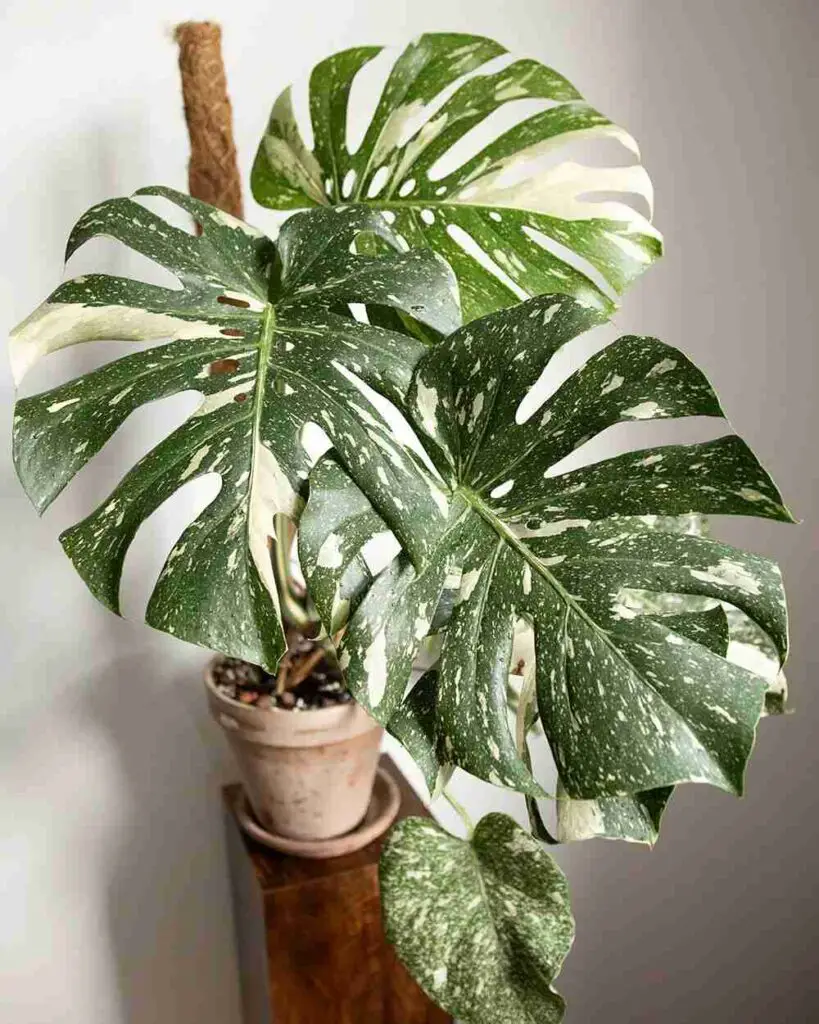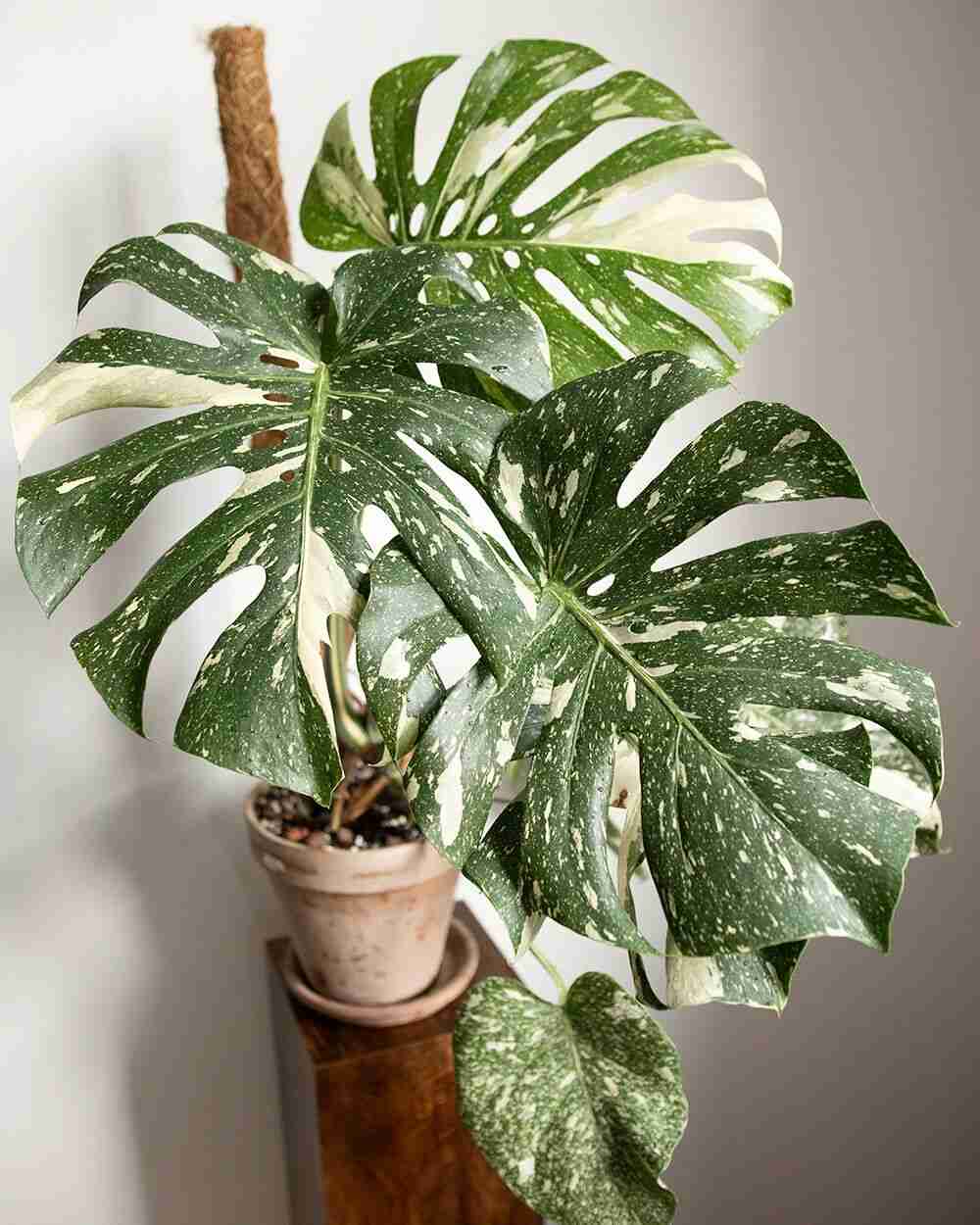Monstera plants have surged in popularity among indoor gardeners due to their striking, tropical leaves and easy care. But many pet owners wonder: are Monsteras pet friendly? This question is crucial for anyone who wants to keep their furry friends safe while enjoying the lush greenery of these plants.
While Monsteras add a beautiful touch to any home, it’s important to understand their effects on pets. Knowing whether Monsteras are safe or toxic helps you make informed choices for a pet-friendly environment without compromising your love for plants.

What Makes Monstera Special and Its Impact on Pets
Unique Characteristics of Monstera
Monstera plants, often called Swiss Cheese Plants, are famous for their large, glossy leaves with natural holes and splits. This unique foliage not only makes them a favorite in home décor but also a symbol of tropical beauty. Their easy growth in indoor settings adds to their appeal for both beginners and seasoned gardeners.
Monstera’s Toxic Compounds
Despite their charm, Monsteras contain calcium oxalate crystals, which are toxic to pets. These needle-like crystals can cause irritation if ingested, leading to symptoms such as drooling, pawing at the mouth, and difficulty swallowing. Both cats and dogs are susceptible to these effects, making it important for pet owners to be cautious.
Impact on Pets and Safety Tips
- Mild to moderate oral irritation is common if a pet nibbles on Monstera leaves.
- Symptoms usually include swelling, redness, and discomfort in the mouth and throat.
- Severe cases may require veterinary attention, especially if the pet swallows large amounts.
To protect pets, consider placing Monsteras out of their reach or opting for pet-safe alternatives in households with curious animals.
Pet Safety Considerations When Growing Monstera
Placement and Accessibility
When growing Monstera in a home with pets, placement is key to safety. Keep the plant on high shelves or in rooms pets cannot easily access. This reduces the risk of accidental chewing or ingestion. Using hanging planters or enclosed terrariums can also help keep Monsteras out of reach from curious cats and dogs.
Preventive Measures for Pet Owners
- Train pets to avoid plants using deterrents like citrus sprays or pet-safe repellents.
- Provide alternative chew toys or plants that are non-toxic to satisfy your pet’s curiosity.
- Regularly inspect plants for signs of nibbling to catch problems early.
Emergency Preparedness
Knowing how to respond if your pet ingests Monstera leaves is vital. Symptoms like excessive drooling, mouth swelling, or vomiting should prompt immediate veterinary consultation. Keeping your vet’s contact information handy and having access to animal poison control services ensures quick action when needed. Being proactive helps maintain a safe, harmonious environment for both plants and pets.
Understanding How Pets React to Monstera Plants
Common Symptoms in Pets
When pets come into contact with Monstera plants, the calcium oxalate crystals can trigger immediate irritation. Typical reactions include:
- Excessive drooling
- Pawing or rubbing at the mouth
- Swelling of the lips, tongue, or throat
- Difficulty swallowing
- Vomiting or decreased appetite
These symptoms usually appear within minutes to a few hours after ingestion, reflecting the plant’s irritating effect on mucous membranes.
Severity Based on Pet Size and Amount Ingested
The severity of symptoms depends on factors like the size of the pet and how much of the plant they have chewed. Smaller pets and those who ingest larger quantities may experience more intense reactions, which sometimes can lead to breathing difficulties. Larger animals often show milder symptoms but still require monitoring.
When to Seek Veterinary Help
While mild symptoms may resolve within 24 hours, any signs of severe swelling, persistent vomiting, or respiratory distress require urgent veterinary care. Immediate intervention can prevent complications such as airway obstruction or dehydration, ensuring the pet’s safety and speedy recovery.
How to Create a Pet-Friendly Monstera Space in Your Home
Strategic Placement for Safety
Creating a pet-friendly Monstera space starts with thoughtful placement. Choose elevated spots like tall shelves, wall-mounted planters, or plant stands where pets cannot reach. Rooms that can be closed off, such as offices or guest rooms, are also ideal for keeping Monsteras away from curious paws and mouths.
Protective Barriers and Accessories
Using physical barriers can prevent unwanted contact. Consider:
- Decorative plant cages or terrariums
- Clear acrylic shields around the base
- Hanging baskets that suspend the plant safely overhead
These accessories allow your Monstera to thrive while protecting pets from exposure.
Enrich Your Pet’s Environment
To discourage pets from chewing on plants, provide plenty of engaging toys and pet-safe plants like cat grass or spider plants. This helps redirect their natural curiosity away from Monsteras. Consistent positive reinforcement training also teaches pets to respect plant boundaries, fostering harmony between your greenery and furry friends.
Choosing the Right Soil and Pot for Monstera Around Pets
Soil Selection for Safety and Plant Health
When growing Monstera in a pet-friendly home, selecting the right soil is crucial. Opt for well-draining, non-toxic potting mixes free from harmful chemicals or fertilizers that could harm curious pets. Organic, peat-based soils mixed with perlite or orchid bark provide excellent aeration and moisture control, promoting healthy root growth while ensuring safety.
Pot Materials and Designs
Choosing the right pot can enhance both plant growth and pet safety:
- Heavy ceramic or terracotta pots reduce the risk of tipping over if pets bump into them.
- Self-watering pots help maintain consistent moisture, minimizing mold growth or stagnant water that might attract pets.
- Avoid lightweight plastic pots that can be easily knocked down by active pets.
Additional Safety Tips
- Use saucers to catch excess water but ensure they don’t collect standing water, which can attract insects or encourage pet drinking.
- Avoid decorative stones or mulch that pets might ingest.
- Consider placing a barrier or tray under the pot to prevent soil spillage that pets could access.
Proper soil and pot choices help keep Monsteras healthy while reducing risks for pets in your home.
Monstera Care Tips for Homes with Pets
Regular Maintenance and Cleaning
Keeping your Monstera healthy involves routine care, which also benefits pet safety. Regularly dust the leaves to prevent buildup that might attract pets’ attention. Prune damaged or yellowing leaves promptly to reduce the risk of pets chewing on weak foliage. Removing fallen leaves from the soil surface keeps the area clean and less tempting for curious animals.
Safe Fertilization Practices
Use pet-safe fertilizers or natural alternatives like diluted compost tea to nourish your Monstera. Avoid chemical fertilizers that could be harmful if ingested. Always follow the manufacturer’s instructions and store all gardening products out of pets’ reach to prevent accidental poisoning.
Monitoring Plant and Pet Interaction
Observe how your pets behave around the Monstera. If they show interest in nibbling, reinforce boundaries using deterrents or relocate the plant. Providing alternative greenery, such as pet-safe cat grass or herbs, can satisfy their chewing instincts safely. Consistent attention and care ensure your Monstera thrives without compromising your pets’ health.
Using Monstera as Décor in a Pet-Friendly Home
Stylish and Safe Placement Ideas
Monstera plants bring vibrant tropical flair to home décor, but integrating them safely around pets requires some creativity. Placing Monsteras in hanging planters or high window ledges adds greenery without risking pet access. Combining the plant with sturdy, decorative stands ensures it stays stable even in active homes.
Combining Aesthetics with Pet Safety
- Use heavy pots with wide bases to prevent tipping.
- Surround the Monstera with pet-safe plants like Boston ferns or calatheas for a lush, layered look.
- Incorporate natural barriers such as wicker baskets or decorative cages to discourage pets from reaching leaves.
Enhancing Your Living Space Responsibly
Choosing non-toxic accessories and avoiding loose soil or mulch keeps the area clean and pet-friendly. Lighting your Monstera with indirect sunlight highlights its beauty without stressing the plant or pets. Thoughtful décor planning helps you enjoy the exotic charm of Monsteras while keeping your pets safe and your home stylish.
The Benefits of Houseplants Like Monstera for Your Space
Improving Air Quality Naturally
Monstera plants contribute to healthier indoor air by filtering pollutants such as formaldehyde and benzene. Their large leaves increase oxygen production and humidity, creating a fresher, more breathable environment. Studies show that indoor plants can reduce airborne toxins, promoting overall well-being.
Enhancing Mental Health and Ambiance
Having houseplants like Monstera in your living space positively impacts mood and stress levels. Caring for plants provides a calming routine, while their vibrant foliage adds a touch of nature that enhances relaxation and creativity. This connection with greenery has been linked to reduced anxiety and improved focus.
Decorating with Versatility and Style
Monsteras are versatile décor elements, blending well with various interior styles from modern to bohemian. Their sculptural leaves make a bold statement while softening room aesthetics. They can act as natural dividers or focal points, enriching the ambiance without overwhelming the space. This blend of beauty and function makes them a popular choice for enhancing any home.
Final Thoughts
Monstera plants offer stunning greenery that enhances any home, but pet owners must balance beauty with safety. Understanding their toxic potential helps prevent accidental pet exposure. With thoughtful placement, proper care, and protective measures, you can enjoy Monsteras while keeping your furry friends safe and happy.

I’m Shofi, a passionate gardener and blogger. I have 10+ years of experience in gardening and hold certifications in horticulture and garden design. I share my knowledge and skills through my garden blog to inspire and educate others on the joys of gardening. I try to provide valuable information and create a community for gardeners of all levels to connect and learn. My ultimate goal is to inspire others to start their own gardens and connect with nature.

